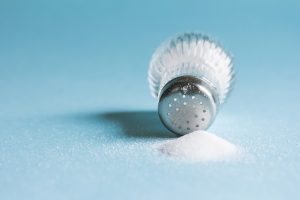
High blood pressure diagnosis almost always is followed by “reduce your salt” recommendation. Even if you don’t have high blood pressure, you may just be holding on to the belief that salt is bad and, therefore, should be limited by all means. Well, a new study may have the opposite advice for you.
Too little salt hurts the heart
The study from McMaster University in Hamilton, Ontario, found that an unnecessary low-salt diet could increase the risk of cardiovascular disease. The researchers suggest only patients with hypertension should cut their intake of salt.
The researchers looked at over 130,000 participants from 49 different countries. The study explored salt intake, blood pressure, as well as cardiovascular disease, stroke, and death.
The researchers concluded that lowering salt intake was associated with a higher risk of heart attack, stroke, and death, compared to individuals who consumed average amounts of salt.
Lead author Andrew Mente commented, “These are extremely important findings for those who are suffering from high blood pressure. While our data highlights the importance of reducing high salt intake in people with hypertension, it does not support reducing salt intake to low levels.”
“Low sodium intake reduces blood pressure modestly, compared to average intake, but low sodium intake also has other effects, including adverse elevations of certain hormones which may outweigh any benefits. The key question is not whether blood pressure is lower with very low salt intake, instead it is whether it improves health,” Mente added.
Before you go and change your diet, especially when it comes to salt intake, speak to your doctor if you really need to be lowering your sodium levels, because if they are just right, banning salt from your diet could be hurting your heart in the long run.